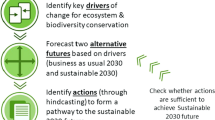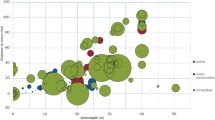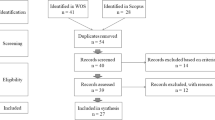Abstract
A framework is developed for the provision of scientific advice to support the management of new and developing marine invertebrate fisheries. These fisheries often occur on species for which little biological or exploitation information is available. The framework explicitly endorses the precautionary approach to fisheries management and research. Three general management strategies (size/sex limits, regulation by total allowable catch, control of the exploitation rate) and their needs for supporting scientific information are identified. The significance of spatial pattern, and of recognizing the need for different approaches to obtain scientific information and to manage sedentary benthic and mobile pelagic species, is a central theme. Three 'phases' are proposed to obtain the necessary scientific information: (a) Phase 0, 'collecting existing information', consisting of syntheses of available biological and fisheries information on the target (and similar) species, leading to formulation of potential management strategies; (b) Phase 1, 'collecting new information', to obtain the essential information that is lacking or insufficient from the Phase 0 analysis, and to evaluate alternative management strategies and propose regulatory actions; and (c) Phase 2, 'fishing for commerce', to implement the chosen management actions and to monitor fishing operations, so as to increase the information base available to refine the results from previous phases. Phase 1 activities may consist of surveys, site-specific depletion experiments and studies to obtain biological information, and development of experimental management areas to test different exploitation rates. A strategy that includes establishing reserve areas recognises the inherent uncertainties associated with developing fisheries and provides a buffer against mistakes or 'surprises'; it also provides control areas to compare stock productivity in fished and unfished locations. The application of this framework to a developing sea cucumber fishery in British Columbia is presented as an example. Throughout, strong interaction and collaboration among science, management, and stakeholders is crucial to the provision of scientific advice for precautionary management of new invertebrate fisheries.
Similar content being viewed by others
Author information
Authors and Affiliations
Rights and permissions
About this article
Cite this article
Perry, R.I., Walters, C.J. & Boutillier, J.A. A framework for providing scientific advice for the management of new and developing invertebrate fisheries. Reviews in Fish Biology and Fisheries 9, 125–150 (1999). https://doi.org/10.1023/A:1008946522213
Issue Date:
DOI: https://doi.org/10.1023/A:1008946522213




